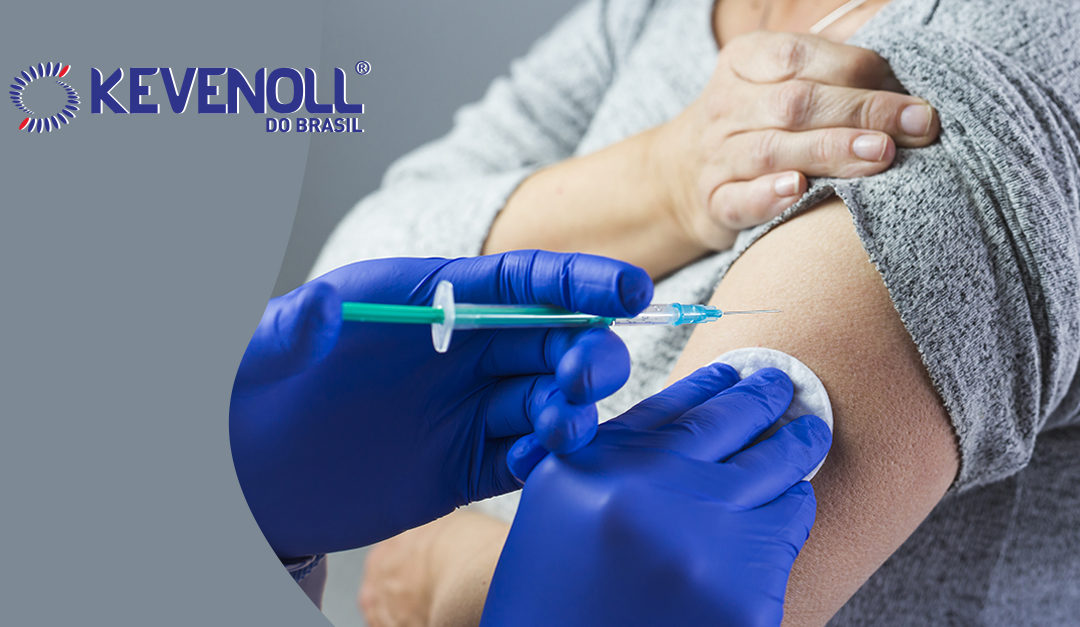The year is ending and all we want is to rest, relax a little, get out of the routine, travel with the family. But what many people forget is that some countries and/or cities require visitors to take some specific vaccines before traveling.
This requirement is so important that many can be sent back to the country or region of origin, without even being able to leave the airport. In fact, usually the passenger can not even board without presenting the vaccination card.
This measure aims to prevent visitors from carrying diseases between localities, and not necessarily by the risk of contamination at the destination. But in some cases of travel to countries that face or have faced some kind of epidemic, vaccination really aims to protect travelers from contamination with the most diverse types of diseases.
Which countries currently require vaccination?
Countries in Asia, Oceania and Central America, for example, require the International Vaccine Certificate, a document that proves that the person traveling has been immunized with the mandatory vaccines for that region. Some places that require this certificate:
- South Africa;
- Australia;
- Bahamas;
- China;
- Cuba;
- Egypt;
- India;
- Indonesia;
- Mexico; Mexico;
- Singapore;
- Jamaica, Jamaica, Jamaica,
- Thailand.
And another 100 countries that require at least the yellow fever vaccine.
What vaccines are recommended before an international trip?
If your trip is to rural areas, forests or places where you will have a lot of contact with nature, the National Health Surveillance Agency (ANVISA) recommends the following vaccines:
- Yellow Fever;
- Tetanus;
- Diffrhyphtheria;
- Hepatitis A and B;
- Triple Viral (Measles, Mumps and Rubella);
- Antirabies.
Among others.
black vomit
Worldwide, yellow fever vaccine is always mandatory. This is because the disease, which is transmitted by Aedes Aegypti – even a mosquito that transmits dengue, zika virus and chicugunha fever – is infectious and extremely serious, and has no cure.
That is why it is extremely important that you are vaccinated against this disease regardless of the country to which you will travel.
And to travel within Brazil?
Regulators do not demand any specific vaccine for most regions when Brazilian tourists travel within their own country. But for some specific states or when a city is experiencing an outbreak of some disease, visitors may be asked to present the vaccination card proving immunization against yellow fever, typhoid fever, hepatitis A and B, polio, dysphtheria, tuberculosis, cholera, meningitis, and other diseases. They are:
- Acre;
- Amapá;
- Amazon;
- Federal District;
- Goiás;
- Maranhão;
- Mato Grosso and Mato Grosso do Sul;
- Minas Gerais;
- Para;
- Rondonia;
- Roraima;
Other precautions:
In order not to put your holiday and health at risk, always check if the region you are travelling to needs a specific vaccine or has recently experienced an epidemic. Also, always keep your vaccination card up to date, and try to get vaccinated at least 1 month in advance of your trip.
Also remember to always take vaccines in safe places such as health centers, vaccination centers or private clinics of your trust. If you need to take the vaccine in a new location, check the hygiene and safety conditions, such as the use of procedure gloves by those who will apply immunization.
For more questions, look for the ANVISA Traveler Guidance Center closest to you.
Follow Kevenoll’s tips from Brazil, and have a safer vacation!



